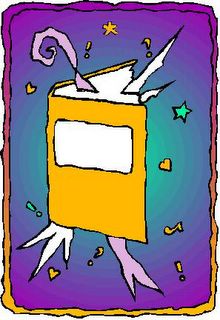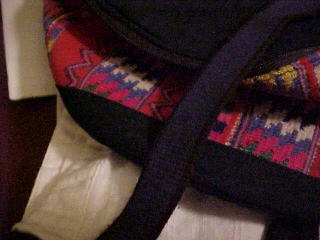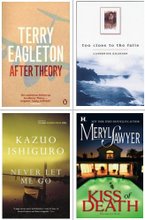
Only someone who loves reading could have drawn this

I just finished reading Gladwell's
blink today. What he says makes total sense to me. It's the scientific, academic information that backs up something I've been (sort of) aware of since I figured out how to write multiple choice tests in high school. I can't remember how I figured it out, but I do remember knowing that I should go with my first (instinctive?) choice, rather than thinking about it. If I thought about my answers, I got lower marks than if I just "guessed," so I "guessed." I remember feeling guilty because my friend Barb, who studied harder, I thought, and often helped me review, sometimes got lower marks. She tried too hard.
I remember reading somewhere, years ago, that if runners ran full out, and at 3/4s effort, that they often ran faster at 3/4s. Same thing, I guess.
And I really like how Gladwell writes, with information embedded in narratives, and descriptions of the people involved as researchers or as examples. He humanizes knowledge.
I was a bit disappointed that he didn't mention Michael Polyani, because I think some of the research, especially the stuff about "implicit" knowledge, was rooted in Polyani's thought.
And it is relevant to teaching. The rules about how to make an improv work were interesting, and I often think that teaching is a lot like performing an improv, and "mindreading" the student's faces to see how it's going over (or rather "in"). The part about Rip and the red and blue team, reminded me of how the rules can be used by people not in the classroom to actually diminish a teacher's skills and abilities. Some people prefer power to understanding and success.
 Found someone plagiarising text for a school-assigned website. When I googled, the student's text was found on at least five other sites. The student used someone else's text word-for-word, but so had others outside the school environment!
Found someone plagiarising text for a school-assigned website. When I googled, the student's text was found on at least five other sites. The student used someone else's text word-for-word, but so had others outside the school environment!




